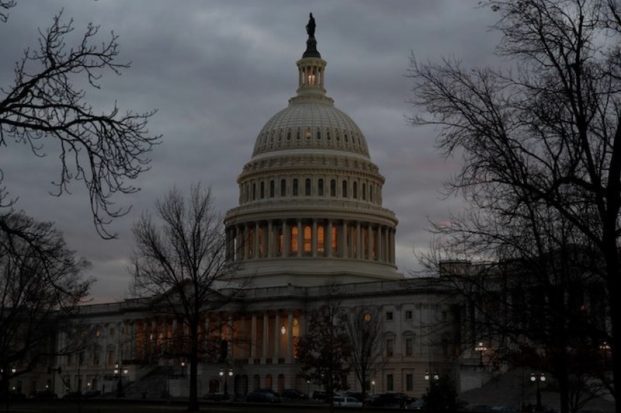The US Senate on Wednesday passed a bill that would subsidise domestic semiconductor manufacturing with $52 billion, and allocate $170 billion for technological research to compete with China.
The expected passage, by 64 to 33 votes, is a move to compete with China and alleviate a persistent global chip shortage.
The House of Representatives plans to vote on the bill on Thursday and it is expected to pass. President Joe Biden would sign it into law early next week.
The “Chips and Science” act provides about $52 billion in government subsidies for US semiconductor production and an investment tax credit for chip plants estimated to be worth $24 billion.
Biden hailed the bill’s passage, saying it would “accelerate the manufacturing of semiconductors in America, lowering prices on everything from cars to dishwashers. It also will create jobs – good-paying jobs right here in the United States”.
Congress would still need to pass separate appropriations legislation to fund the $170 billion.
‘Slumbering Giant Has Awakened’
“This legislation is going to create good paying jobs, it will alleviate supply chains, it will help lower costs, and it will protect America’s national security interests,” the Senate’s Democratic majority leader Chuck Schumer said.
Senator Mark Warner said the bill would help fund 10 to 15 new semiconductor factories.
“If we had not done this, there would not be another American semiconductor manufacturing plant ever built in this country,” Warner said.
Others noted China had lobbied against the bill. “This is a bad day for President Xi and the Chinese Communist party,” Senator John Cornyn said. “The slumbering giant that is America has finally awakened to the challenge that we face from [China].”
The Chinese embassy in Washington said China “firmly opposed” the bill which it said was “entrenched in the Cold-War and zero-sum game mentality”.
- Reuters, with additional editing by George Russell
READ MORE:
Semiconductor Sector Outgrows Boom and Bust Cycles: Pimco
Germany’s Merck to Build $82m China Semiconductor Plant
India’s Vedanta to Announce Semiconductor Plant Location






















